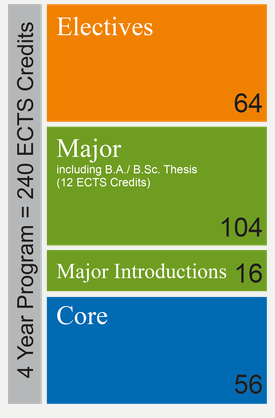EPI-WIKI
Tabs
Curriculum Design
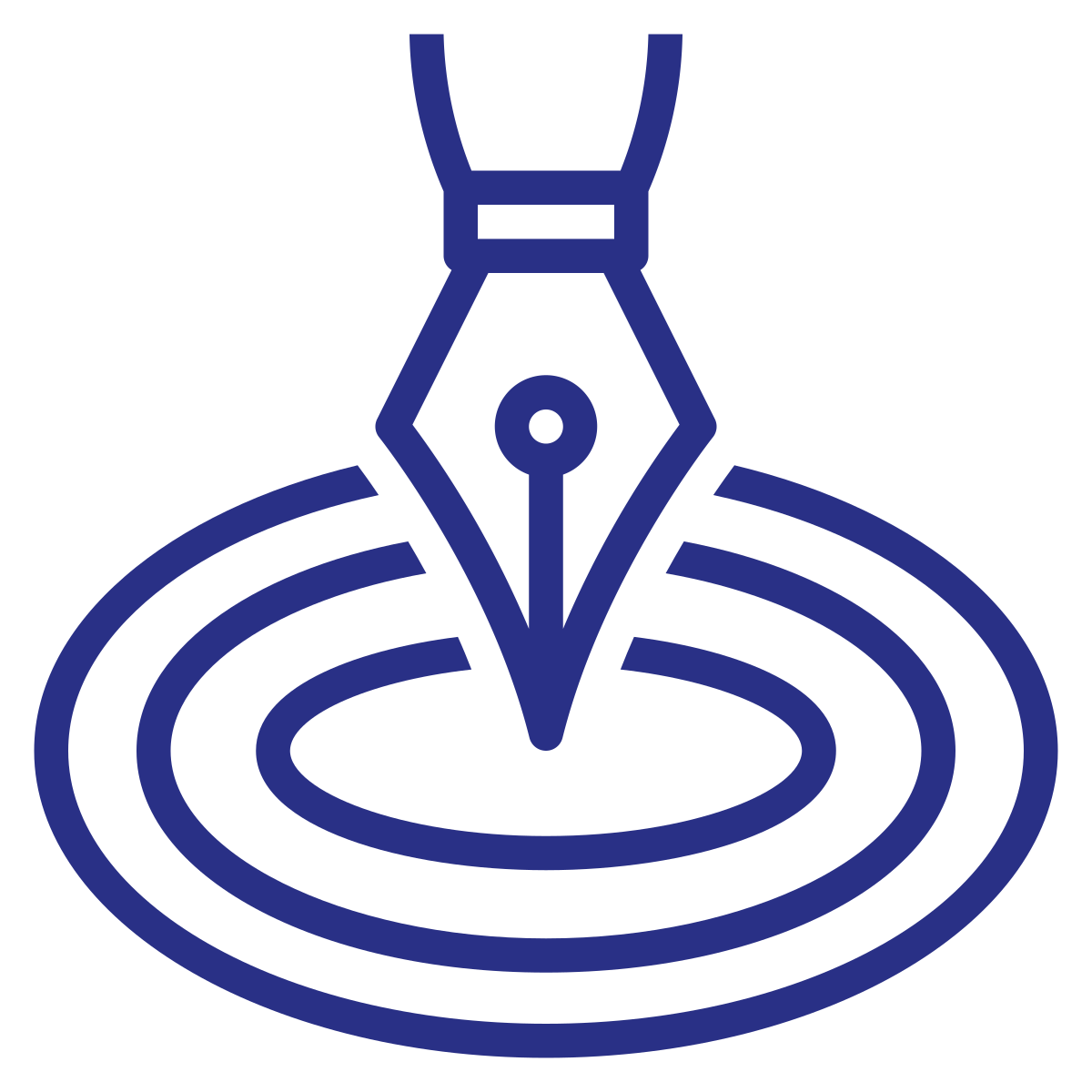
How to design an LAS curriculum?
General considerations
Curricula might vary, however what all LAS programs share is a set of core courses that all students have to complete and that require the student to study the various disciplines in courses that have a more or less strong interdisciplinary focus. These core courses are either taught in the first year to serve as a basis for further study, or students take one of these increasingly challenging courses in each year of study.
For the core courses you should plan in advance what type of academic you would like to teach these courses. Especially interdisciplinary courses require motivated, open minded academics who are really interested in teaching innovation. It is highly frustrating if an element of your programme design cannot be implemented because you cannot find the staff to teach it. If all your teaching staff is seconded from the university, then you will have to search very carefully for the academics to teach these courses. Especially when designing innovative and interdisciplinary courses, keep asking yourself who can teach this course and where will you find them. Once you have your staff, involve them in the course design, give them proper training as to what is expected of them and offer regular and intensive supervision.
Examples of LAS programmes and different core and major distributions (produced by KIT):
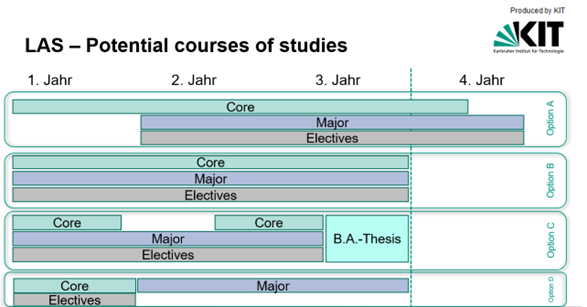
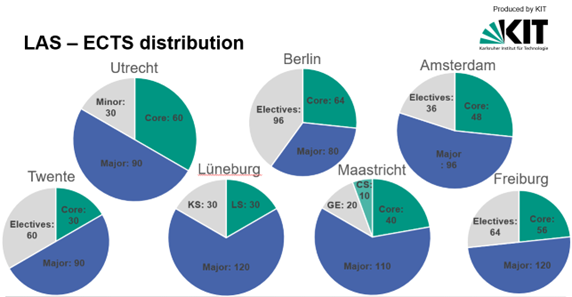
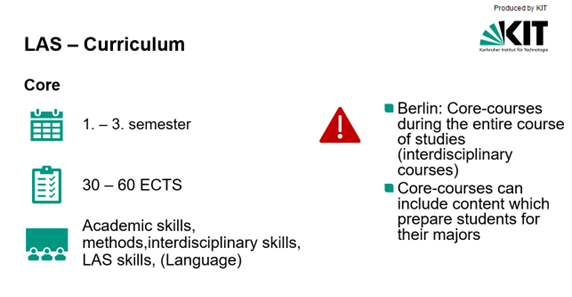
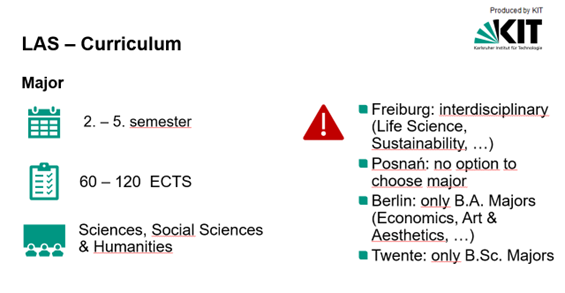
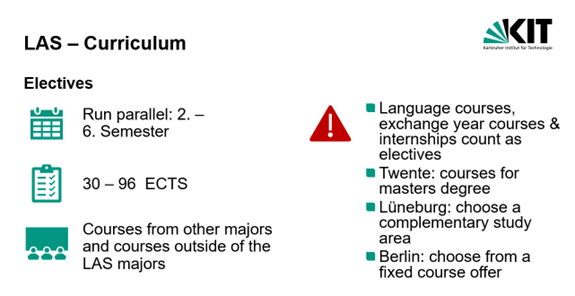
Research skills are introduced and refined throughout the programs often starting in the first year with compulsory courses, followed by more training within the specialisations, with formative assessment to support the students’ development. Throughout the program students write shorter and longer essays regularly. Nearly all programmes end with an individual research project. From the beginning plan the research training from more general skills to specialisation specific courses, preparing students for their individual project, but obviously also for master programmes or job market.
Finally, citizenship skills are included in a sometimes more other times less explicit ways: included in core courses, as skills trainings in languages or in action learning programs.
A distinction can be made between the programmes that offer all courses in their own programme and those which offer a core set of courses in the programme while students select the rest of their courses from other programmes in the university. Within those two categories programmes make their own choices. LUC and UCM offer all their courses themselves, within their own programme but these courses are organised in different ways: at Leiden University College The Hague courses from various disciplines are scheduled in thematic majors, University College Maastricht works with concentrations that are more disciplinary organised but within which the students can also study a thematic set of courses. In these programmes students have quite a lot of choice. Provide them with a clear framework of which requirements their choices will have to meet for graduation. At Warwick University students can pick part of their courses from courses the university has on offer in addition to the core modules that are designed and taught by the programme itself. Here, specific sets of courses within other degree programmes have been preselected, usually with some space for own choices.
Whichever choice you make, it is important to have clear guidelines for the content of your programme. As your programme develops, new insights will arise, ideas will be proposed, new staff will bring enthusiasm for additional courses. It will most likely not be possible to incorporate them all and you should be able to make decisions based on the aims and vision of your programme. The availability of instructors will obviously also determine the direction the programme will take and therefore your staffing policy is key to your success.
Questions to ask
- What is/are the language(s) of instruction? What informs(ed) this decision? What language proficiency benchmark(s) are in place (or refer to admissions requirements for benchmarks)?
- How are transversal academic skills placed throughout the curriculum?
- How does the program enable student choice (e.g., flexibility in course selection, study abroad) in their path to degree?
- Are you hoping that LAS students will continue with a Master’s degree at your university after they graduate? What are your limitations to freedom?
- How is breadth of knowledge accounted for in the curriculum structure (e.g., students having concentrations or specializations in multiple areas)?
- What didactic principles inform the teaching & learning (e.g., the physical space, the class size, types of assessment, problem-based learning)?
LAS programs at EPICUR partner institutions
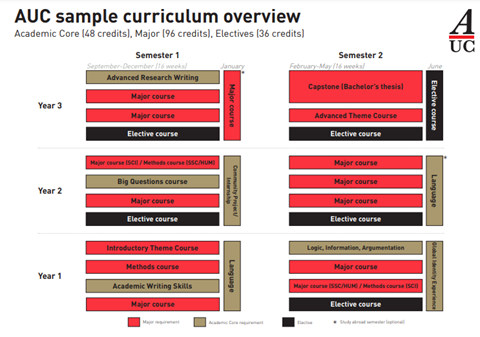
Source: https://www.auc.nl/academic-programme/programme-structure/programme-structure.html
AUC's study programme includes six semesters (totaling 180 European credit points) over the course of three years. Each semester is 20 weeks long, divided into a 16-week period and a 4-week period. You will take five courses per semester of 6 credit points each (four courses in parallel during the 16-week period, and one course during the 4-week period). This will amount to a total study workload of around 42 hours per week (16 hours of class plus 26 hours of self-study).
The AUC curriculum is composed of four components:
Academic Core courses:
Academic Core courses (48 ecp) are classes that all AUC students must take. The Academic Core provides a foundation for the rest of the programme and includes foreign language courses, Big Questions courses, logic, academic writing courses and Global Identity Experience.
Major courses:
At AUC, students choose one of the three majors: sciences, social sciences or humanities. Based on this selection, students then begin taking courses to fulfil their major requirements (96 ecp). The level (100, 200 or 300) corresponds to how advanced the course is considered to be, with 100-level indicating an entry-level course and 300-level indicating specialised and advanced courses.
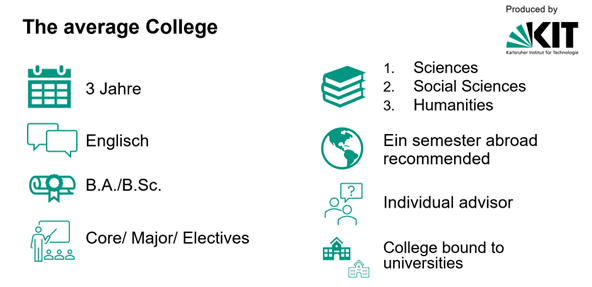
Elective courses:
In addition to Academic Core and major courses, students will also take electives of their choice (36 ecp). For electives, students are free to select courses from any of the three majors and can take the opportunity to explore fields or disciplines that may not be related to their major. Alternatively, students can use their elective courses to delve further into a specific area or specialisation within their major. Elective courses encourage students to create personal curriculums that extend beyond traditional disciplines or conventional study programmes.
Capstone project:
At the culmination of the programme, all students will write a Bachelor's thesis referred to as their Capstone project. Worth 12 ecp, the Capstone project sees students developing, researching and analysing an original topic of their choice. The Capstone experience allows students to bring various components of their individual study plan together to showcase the unique knowledge and applied skills they've learned throughout the programme.
In total, students will take a minimum of 28 classes in addition to completing their Capstone project (Bachelor's thesis) to achieve the 180 ecp needed to satisfy the programme requirements to graduate.
Some courses are listed under more than one of these components. For example, a course can be listed as an Academic Core course and as a major course, or the same course can be listed under multiple majors. These types of courses are referred to as “cross-listed” courses. A student can decide for themselves for which requirement they choose to count the cross-listed course. However, the same cross-listed course cannot count towards multiple requirements (i.e. you cannot apply the same course to fulfill a major course requirement and an Academic Core requirement; it will count toward fulfilling one or the other).
The Foundational Year is the starting point of the LAS studies and includes many LAS Core courses. Starting in the second year, students have significant freedom in designing their own study program. This means that LAS students' academic goals and paths will be quite individual.
In the Electives, students can undertake a variety of courses and projects to further shape their profile and / or use these credits for courses taken during their study abroad.
The Majors provide an in-depth education in a specific academic field that is, in itself, interdisciplinary. After their first year of studies, students choose one of the following Majors: Culture and History Governance, Life Sciences, Environmental and Sustainability Sciences. All students take introductions to two further Majors.
Core courses are taken by all LAS students. The Core encompasses basic and advanced academic skills, reflections on knowledge and science, and a curriculum on Responsibility and Leadership.
Source: student handbook
Supervised Independent Study
In order to create flexibility in the curriculum and to promote self-motivated study in students, LAS allows students to receive credit for supervised independent study. Supervised independent study is reserved for students in their third or fourth LAS year and is designed primarily to meet two goals.
First, it is for those students who need specific coursework in order to enter a Master program and cannot find a suitable solution in the LAS curriculum or in other courses at the University of Freiburg.
Second, it is for exceptionally motivated students who wish to pursue advanced scholarly or scientific study not available in the curriculum. Credit for supervised independent study contributes to your Major as a Specialization Option. In exceptional cases, it may count towards the Electives.
Supervised independent study can take a variety of forms, depending on disciplinary norms and your goals. In all cases, the intellectual, academic, and scientific standards for supervised independent study must meet the research standards of their field (at the Bachelor level). Even if the project does not produce original research in the narrow sense, it should deal directly with research in a specific discipline or field of study. Guidelines and short descriptions of what is appropriate in your Major are available through on the ILIAS Major Interest Group and/or the Major Wiki.
Students take classes targeting core (transversal) academic skills that include philosophy, research methodology, logic, interpersonal communication, academic writing and broader language instruction. Most core classes take place within the first year of study, accounting for 44 ECTS of a student’s full load of 60 ECTS in this first year, with fewer such courses in the subsequent years. The English Communication Skills class lasts through the entire program with intensity of 60h (4 ECTS) per semester.
The legal framework of Polish Education does not allow the implementation of the concept of concentrations. For example, in the ALU-FR/UCF LAS Bachelor Program, while a student may pursue a degree in LAS, their “major” (i.e., concentration or specialization) within that program may be in one of four program areas (e.g., Culture & History); such a model is not possible in Poland. Instead, throughout the entire program, students take courses across different disciplines, regardless of their preferences. This limitation turns out to have some beneficial results: exposure to disciplines outside of their scope of interest often leads to broadened interests and the abandonment of narrowing self-perceptions (e.g, assumptions that an interest in pursuing scientific knowledge is incompatible with a commensurate interest in pursuing knowledge in the humanities).
Starting in the second year of study, two classes from two Faculties of AMU are selected each semester, four classes altogether (the AMU-LAS-Bachelor defines which Faculties should be attended in specific semesters). Students choose two of them, one class per Faculty. In the second year, students also begin taking lectures offered by LAS. Each semester student takes one of two offered lecturers. In addition to this, university-wide policy obligates students to take 60h of general university classes in the second year of their BA. Faculty-based classes, monographic lectures and general university classes in sum take 420 study hours from 2005 total program hours (21%).
In terms of physical location, most classes take place in the Faculty of History. For some science classes, students move to research facilities (laboratory, astronomic observatory) in other faculties.
LAS class sizes are typically 20-25 students. Most classes take place in lecture or seminar rooms – in specific classes, students can visit a research lab or astronomic observatory. Lecturers have freedom in their approach to teaching in the AMU-LAS-Bachelor. Forms of evaluation vary from papers and projects to written and oral exams.
Source: https://las.amu.edu.pl/en/
In three years, the student of our program gets acquainted with the cross-sectional image of modern science, which includes both the humanities and experimental sciences. This is accompanied by the development of competencies such as speaking, logical thinking and teamwork. LAS allows you to develop the sense of searching for truth and a comprehensive view of the world. At the same time, we are convinced that it is the Liberal Arts and Sciences formula that will allow our students to face the challenges of the contemporary, dynamically changing labour market.
The importance of critical thinking, life-long learning and assuming responsibility for one’s thoughts and their articulation remain among the pillars of the liberal arts.
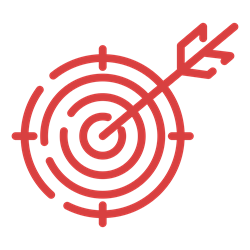
Learning Aims and Educational Philosophy

Programme Size and Target Group

Language of Instruction
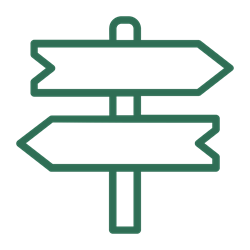
Integration of Study Abroad, Internships, etc.
Related Wiki pages
These Wiki pages might also be interesting for you:
Back to IMPLEMENTATION > Establishing LAS Programmes at Your Institution > Curriculum Design & Articulation
Last edited: 28. Oct 2022, 12:16, [sr1149@uni-freiburg.de]
